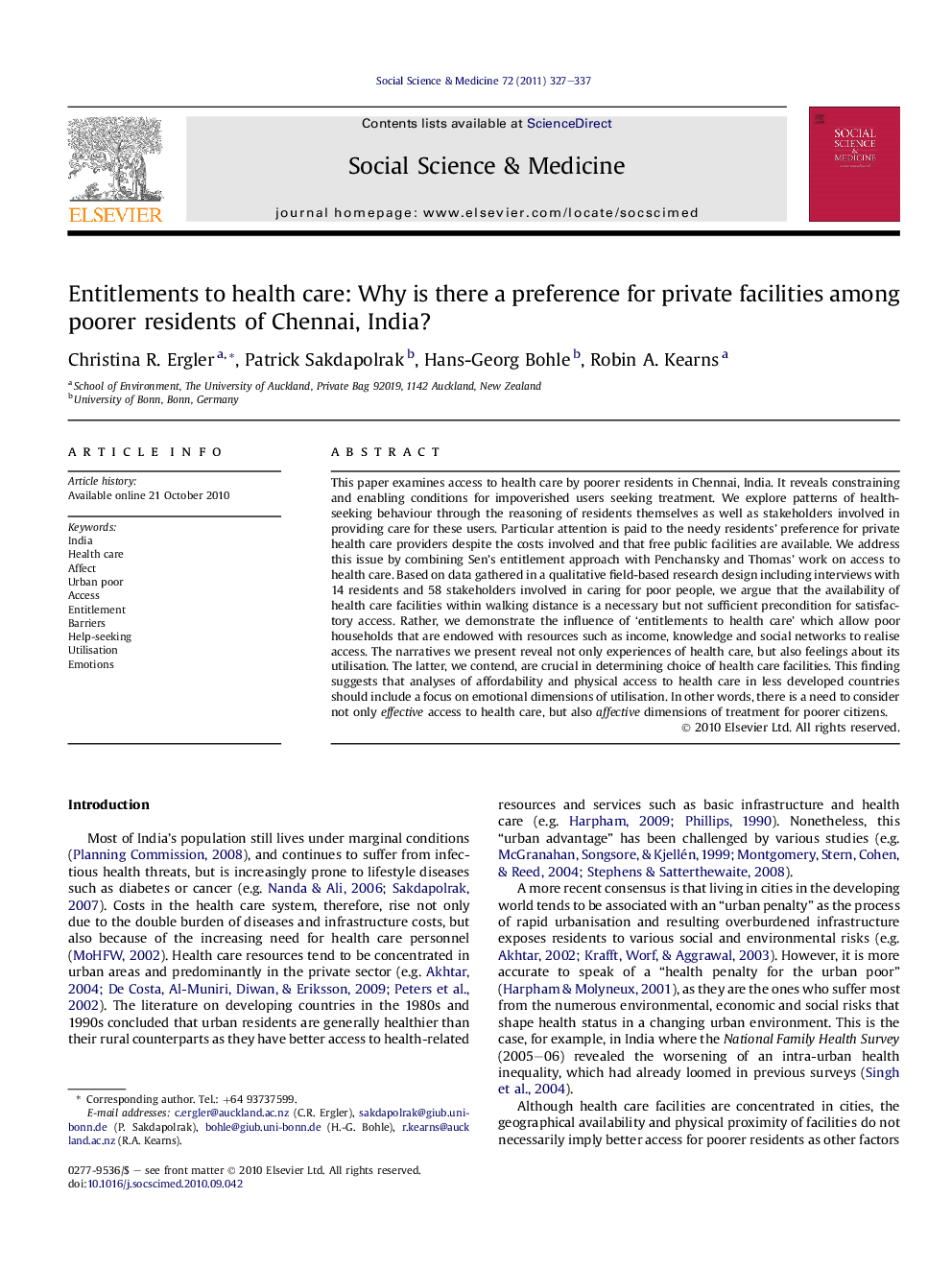| Article ID | Journal | Published Year | Pages | File Type |
|---|---|---|---|---|
| 952729 | Social Science & Medicine | 2011 | 11 Pages |
This paper examines access to health care by poorer residents in Chennai, India. It reveals constraining and enabling conditions for impoverished users seeking treatment. We explore patterns of health-seeking behaviour through the reasoning of residents themselves as well as stakeholders involved in providing care for these users. Particular attention is paid to the needy residents’ preference for private health care providers despite the costs involved and that free public facilities are available. We address this issue by combining Sen’s entitlement approach with Penchansky and Thomas’ work on access to health care. Based on data gathered in a qualitative field-based research design including interviews with 14 residents and 58 stakeholders involved in caring for poor people, we argue that the availability of health care facilities within walking distance is a necessary but not sufficient precondition for satisfactory access. Rather, we demonstrate the influence of ‘entitlements to health care’ which allow poor households that are endowed with resources such as income, knowledge and social networks to realise access. The narratives we present reveal not only experiences of health care, but also feelings about its utilisation. The latter, we contend, are crucial in determining choice of health care facilities. This finding suggests that analyses of affordability and physical access to health care in less developed countries should include a focus on emotional dimensions of utilisation. In other words, there is a need to consider not only effective access to health care, but also affective dimensions of treatment for poorer citizens.
